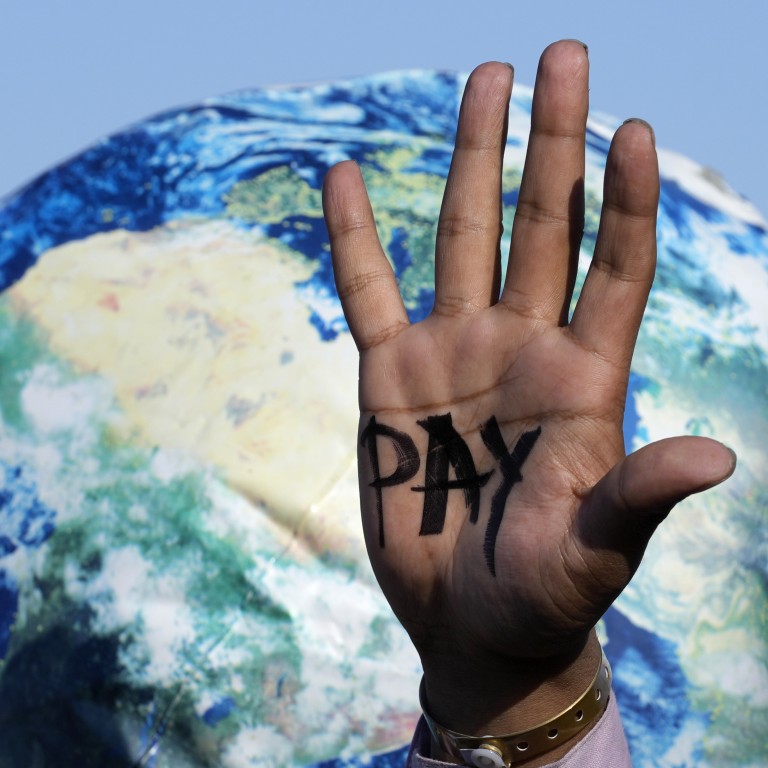
As the biggest lender to poor nations, wealthy China can do more for climate finance
- As the largest bilateral creditor to the world’s poorest states, China can prioritise climate concerns in debt relief
- It can also support reforms and expansion at multilateral development banks so they can lend more to low-carbon projects and phase out fossil fuel financing
Richer nations have built their prosperity upon the pollution that continues to destabilise the earth’s climate. Historically, the United States, 27 member states of the European Union and Britain are the largest emitters of greenhouse gases since the start of the industrial revolution.
China is now the second largest economy in the world and the third largest historic emitter after the US and EU. Its cumulative emissions are projected to surpass that of the EU in the second half of this decade.
As China grows richer and its emissions accumulate, it will be increasingly difficult for China to remain in the same class as other developing countries, and Beijing recognises that. “As the levels of development in developing countries diverge, divisions in their interests in economic development and climate change will become more visible,” said a 2020 report by China’s top government climate policy think tank.
China has responded to such pressure with caution, saying it is willing to support a “loss and damage” mechanism, but not with cash.
A move by China to fund such a mechanism within the UN climate convention could open up the country to financing demands from developing countries, not only to rectify climate damage, but also to finance their transition to a climate-neutral economy, something China is not currently obliged to do under the UN climate convention.
As the largest bilateral creditor to the world’s poorest countries, China should continue to work with fellow G20 members to ensure that the common approach to debt relief takes into account the debtor’s climate risk and the need to scale up investment in essential climate-resilient infrastructure.

Other than offering bilateral finance to other developing countries, China could leverage its influence as a shareholder in the International Monetary Fund and various multilateral development banks to fill the gap in international climate finance.
World is waking up to how development banks can fund social good
First, China should support actions to implement the five-point plan recommended by a G20-commissioned report to boost the investing capacity of multilateral development banks, which have the potential to unleash US$1.2 trillion of private capital. This should start with supporting the reform of capital adequacy policies at the World Bank, which will hopefully spread to other development banks.
Byford Tsang is a senior policy adviser at E3G, an independent climate change think tank
Juan Pablo Osornio is the programme lead for the climate diplomacy team at E3G


